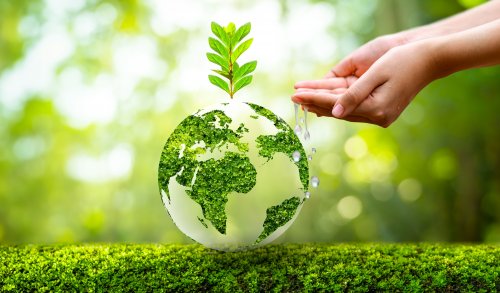The EU wants to establish new rules for companies under which only those products that are not involved in deforestation will be allowed on the European market.
The new rules will help fight climate change and biodiversity loss around the world, reports European Parliament.
The new law obliges companies to check that products sold in the EU are not produced on deforested or degraded land.
The Committee on the Environment, Public Health and Food Safety adopted the Commission's proposal for a regulation on deforestation-free products to stop global deforestation caused by the EU by 60 votes for, 2 – against, 13 – keep from.
The rules will ensure consumers that the products they buy do not contribute to the destruction of forests outside the EU, including irreplaceable rainforests, and therefore reduce the EU's contribution to climate change and biodiversity loss worldwide.
MEPs also want companies to check whether goods are produced in accordance with human rights protected by international law and the rights of indigenous peoples in addition to the relevant laws and standards of the country where the products are produced.
The Commission's proposal concerns:
- cattle;
- cocoa;
- coffee;
- palm oil;
- soybeans;
- wood
The rules also apply to products that contain, have been fed or produced using these goods (such as leather, chocolate and furniture).
The European Parliament wants to include in the list pork, sheep and goats, poultry, corn and rubber, as well as charcoal and printed paper products.
The commission will have to assess no later than two years after entry into force whether and to what extent the rules should be extended to other commodities such as sugar cane, ethanol and mining products.
MEPs also want it to cover other natural ecosystems such as grasslands, peatlands and wetlands, if the Commission deems it appropriate, within one year of entry into force. MEPs also want financial institutions to be subject to additional requirements to ensure that their activities do not contribute to deforestation.
While no country or product will be banned, companies placing products on the EU market will be required to exercise due diligence to assess the risks in their supply chain. They can use satellite monitoring tools, field audits, supplier capacity building or isotopic testing to verify where products come from.
EU authorities will have access to relevant information such as geographic coordinates. Anonymized data will be publicly available.
Based on a transparent assessment, the Commission will have to classify countries or part of them into low, standard or high risk categories within six months after the entry into force of this regulation. Imports from low-risk countries will be subject to fewer obligations.
"We take the fight against climate change and biodiversity loss seriously. Recognizing that the EU accounts for around 10% of global deforestation, we have no choice but to step up our efforts to stop global deforestation. If we find the right balance between ambition, applicability and compatibility with the WTO, this new instrument has the potential to pave the way for deforestation-free supply chains," said MEP Christoph Hansen.
A plenary session is expected to adopt the parliament's position in September, after which negotiations on the final law with member states could begin.
The Food and Agriculture Organization of the United Nations estimates that 420 million hectares of forest were lost to deforestation between 1990 and 2020, an area larger than the size of the EU.
In October 2020, Parliament used its Treaty prerogative to ask the Commission to develop legislation to stop global deforestation caused by the EU.
Earlier EcoPolitic informed, that the war in Ukraine caused serious disruptions to the global timber trade and heightened concerns about destruction of forests due to illegal logging and increased forest fires.
As EcoPolitic previously reported, The European Commission will propose a draft law that will oblige the countries of the Union restore 20% of its natural areas by 2030 and all degraded ecosystems by mid-century.





